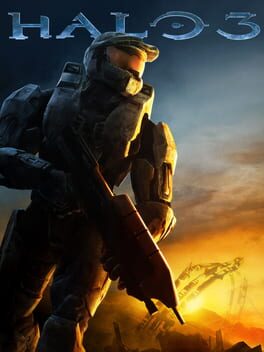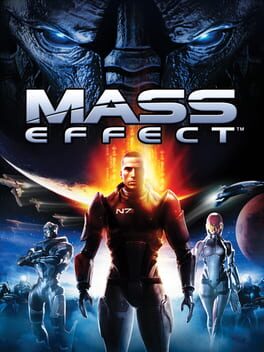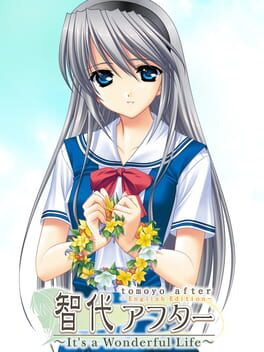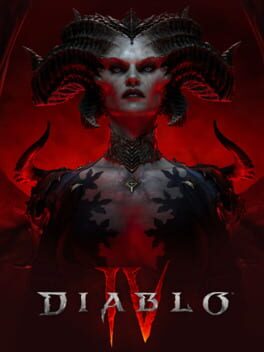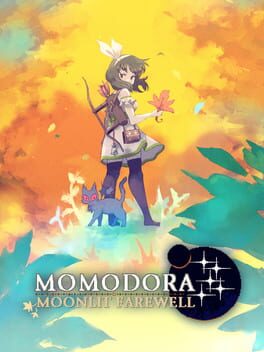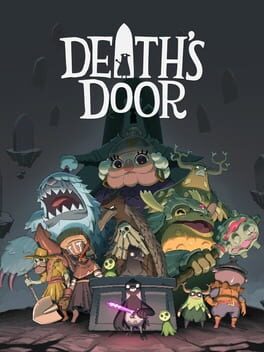cdmcgwire
BACKER
My life is built on a foundation of boomer shooters and RPGs.
I'm making a game! (link)
Decided to stop number rating for now and instead try to put things in lists based on the kind of tastes I think they might appeal to.
Badges

Gone Gold
Received 5+ likes on a review while featured on the front page

GOTY '23
Participated in the 2023 Game of the Year Event

Adored
Gained 300+ total review likes

Trend Setter
Gained 50+ followers

Well Written
Gained 10+ likes on a single review

Clearin your Calendar
Journaled games at least 15 days a month over a year

Pinged
Mentioned by another user

Loved
Gained 100+ total review likes

2 Years of Service
Being part of the Backloggd community for 2 years

Epic Gamer
Played 1000+ games

GOTY '22
Participated in the 2022 Game of the Year Event

Donor
Liked 50+ reviews / lists

Busy Day
Journaled 5+ games in a single day

Roadtrip
Voted for at least 3 features on the roadmap

Liked
Gained 10+ total review likes

Organized
Created a list folder with 5+ lists

Listed
Created 10+ public lists

Popular
Gained 15+ followers

Full-Time
Journaled games once a day for a month straight

Best Friends
Become mutual friends with at least 3 others

Noticed
Gained 3+ followers

Elite Gamer
Played 500+ games

Gamer
Played 250+ games

N00b
Played 100+ games

On Schedule
Journaled games once a day for a week straight
Favorite Games
1061
Total Games Played
011
Played in 2024
460
Games Backloggd
Recently Played See More
Recently Reviewed See More
Momodora as a series does not bring any wild ideas to the metroidvania genre, but you do play as a priestess with a maple leaf for a weapon, and I'm fairly confident in saying it's the only metroidvania like that. These are games whose strengths are in how they tailored a set of existing gameplay ideas to the developers particular tastes. The appeal is less in discovering some new place to explore, but in exploring a familiar place in a different way. It's something fresh, but not something that requires you to learn a whole new way of living.
Moonlit Farewell is a what you'd expect from the genre, but it's not everything you'd expect from the genre. It's a carefully chosen subset of elements that are a result of the developer's limits and experience—having already released several games of this style and learning what they do and don't like to do.
This is a long-winded way of saying the game is a lightweight, streamlined, and polished metroidvania, and I quite like it for those qualities. Compared to Reverie Under the Moonlight, the previous in the series, it feels better to play, is more satisfying to play, sits at a perfect length, and maintained a pleasant experience for almost the entire runtime—though I'm sure my familiarities with the quirks of Reverie may have biased me a bit in that aspect.
Oh, and above all of that, this game is gorgeous and I adore the art style. I played it on a Steam Deck OLED and made sure to show it off to all my friends and family and they all quite agreed. The scenery, the effects, Momo's animations. It is all very pretty. The artist(s) should be proud.
From a gameplay side, I will say that I did find some of the boss fight balancing a bit uneven. Mostly dipping into a bit too easy on several of them. But one counter to that is that I seem to have become a bit of a power gamer over the last three years, and I found a particularly lethal combination of the traits available which the average player may not. The other counter is that easy is fine if it means it's staying smooth and relaxing.
Maybe it's the FromSoft brainrot that causes me to even feel the need to justify that, but there it is.
Whereas I would have only really suggested Reverie Under the Moonlight to people plumbing the depths of this genre niche, Moonlit Farewell has reached a point of polish and artistic appeal where I will happily recommend it to anyone. It is the type of game that—to me—justifies delving into a niche and which can introduce the curious to that kind of spelunking. It is a very nice little game and I would love to see more people appreciate it.
As for the rest of this game... and it is a game not a VN... I went in thinking it would be like 90% reading given the 70-90 hour runtime, but oh no... it's like a clean 50/50 split, if not weighted towards gameplay depending on difficulty....
This game is a roller coaster. Except not the kind with any slow sections, but the kind that oscillates between a clean andrenaline rush and whipashing corkscrew nonsense. I can't ever remember being bored during the entire journey, but boy did it get me with shock value at times.
As a sci-fi I actually really enjoyed this narrative. It was a blast from the past of turn-of-the-millenia and early internet, both in that era's hopes and fears. There are concepts of technology, society, and existential quandries used here that I've seen very rarely in the last 20 years (not that I'm some super well read individual) and it uses them in interesting ways, even feeling downright novel at times. It tapered off a bit near the end for me, but I wager at the time the ending would have felt more fresh. Unfortunately some of the final additions are the concepts most overused today.
As a drama this story is nuts. And quite explicit. Like damn. I've never felt so emotionally detached from a group of characters while simultaneously genuinely enjoying and caring about them. It's like the feeling after you've come to terms with something awful happening to someone you care about—or them doing something awful in some cases. You just gotta accept reality, move on, and not become emotionally entrenched.
It does even justify most of those feelings thematically, as well. I'd say the central one here is "crushing nostalgia" as the characters find themselves so far removed from their days of innocence that even just thinking about the good days is a source of pain, even as they find few other motivations in life outside of vague desires to reclaim what once was. It's pretty interesting, and surprisingly not as diluted of an experience as something this long tends to be.
That said—and as I seem to say frequently—it's definitely a game from the early 00's VN scene.
Now, that aside, the biggest surprise here is the combat—the only gameplay but very prominent in its role. It's odd, but it's also oddly good. It's an isometric 2D brawler with 3D movement that plays like a classic arcade mecha game, only perhaps a bit more like an anime fighter than some of its peers.
Given the graphical limitations, you won't be speccing out your mech with specific parts, but you do get full customization of your attack mappings in a system reminiscent of the Tales of series. Each of the four attack buttons can have four attacks mapped to it, each triggering contextually based on range, movement, and a no-repeats limit on moves in one combo string.
The attacks available are varied and their roles in combat seem well defined. The mechanics of combat are nuanced and you can learn to take advantage of them as you work out your tactics to get really devastating effects. There are options you can spam defensively as well early on, but with learning you can take minutes long fights down to 10-15 seconds.
Or, if you're not into that kind of effort in your gaming, you can turn on Very Easy mode and blow everything up with rockets. Up to you. As far as I can tell there's only one or two unlockables that require a higher difficulty and I'm pretty sure they just unlock more combat stuff.
Enemy variety is also kind of absurd for how long the game is. Though I guess that can in part be attributed to it being two games combined into one at this point, but even then, there are probably around 40-60 unique enemies with animated sprites and attack patterns, then a good number of varients on top of that. They're rather creatively designed too, to the point of them sometimes being downright aggravating in that way things can be when creative types are doing what they feel like.
I never found one that didn't have some weakness you could exploit, though. I did get kind of sick of playing on hard by hour 50, though. It's a bit sadistic at times (and I got a new job, so my days of no-lifing games are on hold again).
This is all to say that if you're looking for some classic mech action gameplay and/or a sci-fi that is everything Virtues Last Reward wished it was, then this might be worth checking out.
Just be warned that wholesome feelings are few and far between in this tale.
I jest, but this really is a delightful little experience. It's smooth, it's pretty, it's well paced. It doesn't really take any risks as far as the game design is concerned—I can't think of anything particularly unique, in fact. But it chooses a good blend of concepts from its predecessors and executes on them with polish.
The main draw, in my eyes, is the world and aesthetic. I just love being a little salaryman crow who's job is to reap souls for a dilapidated bureau. Your little bird walk is adorable, the sward is delectably bright against the washed out world, the characters you meet are quirky and fun, and the eulogies given for every boss are actually quite touching.
Death's Door manages a surprisingly good balance of lighthearted and somber elements and that will probably be what keeps it in my mind as a warm memory for a good time to come.
